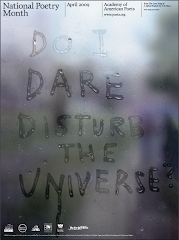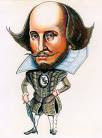There is literally a flower reference on every other page in this book, as I'm sure you've all noticed. I began to turn down all the pages on which flowers or plant-life was mentioned, but soon realized I had every page turned down!
Regent's Park was mentioned numerous times, and I included those examples with my flower references because I felt that they encompassed flowers and gardens and plant-life as a whole, a theme Woolf really delves into in the text. Regent's Park becomes a place where all the characters mentioned wander, either physically or mentally, and have some memory or experience there.
ROSE is mentioned perhaps more than any other flower. This is used to describe women of beauty, particularly Sally and Elizabeth, in the eyes of Mrs. Dalloway and her husband, in terms of his daughter. The word "rose" is also played with when used as a verb rather than describing a literal flower, as is the word "flower" used to also describe the emergence of people and ideas, such as, "It has flowered; flowered from vanity, ambition, idealism, passion, loneliness, courage, laziness, the usual seeds..." (page 84). When discussing time passing, weeds is mentioned (along with waves!).
"But she deared time itself, and read on Lady Bruton's face, as if it had been a dial cut in impassive stone, the dwindling of life; how year by year her share was sliced; how little the margin that remained was capable any longer of stretching, of absorbing, asin the youthful years, the colours, salts, tones of existence, so that she filled the room she entered, and felt often as she stood hesitating one moment on the threshold of her drawing-room, an exqisite suspense, such as might stay a digver before plunging while the sea darkens and brightens beneath him, and the wabes which threaten to break, but only gently split their surface roll and conceal and encrust as they just turn over the weeds with pearl." (page 30, DEFINITELY a PERIOD SENTENCE).
I thought it important to mention this along with the observance of flowers, because when people are compared with flowers in Mrs. Dalloway, they are always youthful and beautiful (Elizabeth and Sally in Clarissa's memory of her as a girl), and the view on time and age is played with throughout the novel. Growing older is generally unfavored among the different characters, and I think the inclusion of "weeds" within the sadness and helplessness of time really acknowledges this. I also thought it interesting that Clarissa remarks at one point that at fifty-two, she did not feel old yet, while Peter thought that made her quite old.
I also noted the mention of Mrs. Dalloway's "green dress" seemed to pop up quite often as well, and there were a fair share Shakespeare references. Religion played a part in the novel as well, and it was interesting to see the division between instituionalized religion and God, Nature verus Divinity, and human nature. Clarissa seems to revel in the concept of God, by shy away from what others consider to be sins, and also deeply analyzes her memories and feelings for Sally and the difference to her between a love for a man and love for a woman.
Subscribe to:
Post Comments (Atom)















..thorough and impressive close-reading, erin1 bravo!
ReplyDelete